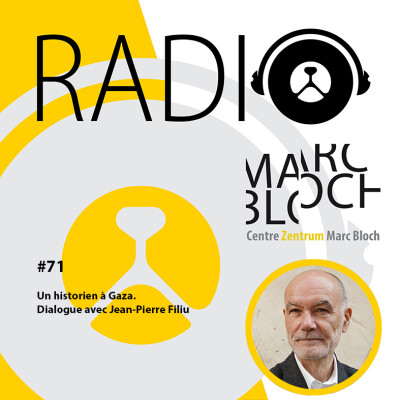Description
What are the most important cirscources and practices around climate security in the different regions of the world ? And how do the institutions and other actors mobilize there discourses and practices.
For Radio Marc Bloch, we had the opportunity to speak with three experts on this area of research:
Judith Nora Hardt works as a postdoctoral researcher at the Centre Marc Bloch. Her research is based on a critical-normative approach and aims to develop conceptualizations of security,
conflict, human well-being and justice via new readings of human-nature relations. One of the central aims of her research is to overcome the several challenges of the climate security field and to thereby advance the development of the climate security agenda with the joined forces of the triangulation of theory and practice. Since 2021, she leads the BMBF funded
research project “Multiple Crises: Covid 19 and the Entanglements of Public Health, Ecology and Security in Europe” at the CMB. She is part of the research group “Climate Change
and Security” at the University of Hamburg since 2017 and associated researcher to the Institute for Peace Research and Security Policy (IFSH). Her work is bolstered by her engagement within the Scientists for Future movement. Her latest book, which she edited together with Cameron Harrington, Franziskus Von Lucke, Adrien Estève and Nicholas P. Simpson was published earlier this year with Springer with the title Exploring the Approaches of United Nations Security Council Member-States .
Dhanasree Jayaram is an Assistant Professor, Department of Geopolitics and
International Relations, and Co-coordinator, Centre for Climate Studies, Manipal Academy of Higher Education (MAHE), Karnataka, India. She is also a Research Fellow, Earth System
Governance; Member, Climate Security Expert Network; Non-Resident Research
Fellow, Finnish Institute of International Affairs; Research Fellow, Centre for Public Policy
Research; and Member, Planet Politics Institute. She holds a PhD in Geopolitics and International Relations from MAHE. She was a Research Fellow at Centre Marc Bloch (CMB) and Guest Researcher at Freie Universität Berlin – under the Alexander von Humboldt Foundation’s International Climate Protection Fellowship during March 2022- August 2023. Her primary areas of research include: Environmental and Climate Security, Climate Diplomacy of Emerging Economies, Regional Environmental Policy in South Asia and the Indo-Pacific/Asia-Pacific region, and Gender and Climate Governance.
Cecilia Oliveira is head of the transdisciplinary research group "Democratic Governance and Ecopolitical Transformations" (EcoPol) at RIFS Potsdam. She is currently working on a transdisciplinary case study in the Amazon Basin. Within the Amazon Basin, research areas include rights of nature, environmental crises, indigenous activism, knowledge production, populism, and climate security. Another area of interest is science communication, aiming to
connect art and politics through dialogue forums, documentaries, lectures, installations and podcasts.
All three currently work together in a bigger team of North-South-scholars on the topic of "challenges and dangers of intsitutionalizing climate security".
Moderation : Sébastien Vannier, responsible for science communication at the Centre Marc Bloch.




